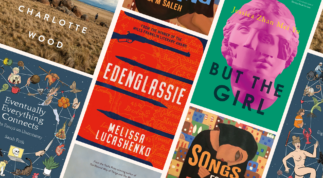From Taylor Swift’s record-breaking Eras world tour to the global release of director Greta Gerwig’s pink-saturated blockbuster film Barbie, and the widespread appreciation for the Australian women’s soccer team, the Matildas, it’s safe to say that 2023 has provided us with an abundance of women-centred content. We’ve delighted in the representation of women in pop culture, from cheering on Matilda’s captain, Sam Kerr, to singing “You Belong With Me” at a screening of the Eras tour concert movie. With numerous remarkable achievements by female celebrities, sporting stars, and directors, internet discourse has become fixated on girls—but perhaps not in the way one might hope.
Many applaud this newfound celebration of girlhood. NPR reporter Bilal Qureshi observes how the convergence of various female-oriented phenomena has given rise to an “entire communal economy,” valuing and celebrating the purchasing power of women. This marks a positive shift from the longstanding cultural devaluation of girls and femininity, which traditionally underrated the significance of playing with Barbie dolls and dismissed women’s sports as unequal to their male counterparts. In this new era, women can finally revel in the recognition of shared experiences and reclaim what was lost through the culture of condescension that obscured the real joys of girlhood.
However, the path to reclamation is not without its challenges. The rediscovery has gradually transformed into a phenomenon known as “bimbofication,” further simplifying the interests of women and girls. Recent TikTok and social media trends, such as “Girl Dinner,” “Girl Math,” and “Girlsplaining,” have contributed to a new restrictive definition of what it means to be a girl, shaping our cultural understanding of femininity and gender.
@liviemaher #girldinner #medievaltiktok ♬ original sound – Olivia Maher
The “Girl Dinner” trend, emerging in July of this year, challenges the expectation that women—or girls beyond their teenage years—should conform to traditional standards of domesticity associated with femininity. The popular videos depict women casually arranging unconnected food items on their plates, like a few pieces of fruit, cheese, and a cracker or two, and calling it a meal. While the variety and quantity of food differ in each video, they are never intricate and never constitute a complete nutritious meal. Is this a feminist stance, reclaiming women’s freedom from domestic constraints, or does it inadvertently endorse disordered eating patterns, suggesting that women and girls need less food?
let’s talk about girl math.
paid in cash? free.
paid w/ my credit card & someone gave me cash? I made money.
if Sephora has a 20% off sale I am losing money if I don’t buy what I need at that time.
if i have $7500 in my account, & only spent $500, i didn’t spend any money. https://t.co/eS0CSGNt8B
— coffee bae (@iamsashakae) August 12, 2023
Similarly, “Girl Math” walks a fine line between breaking barriers and reinforcing patriarchal ideals that limit the intellectual capacity of girls and women. The videos, tweets and memes explain a theory that all girls understand the rules of spending money in the same way, using examples like paying with cash to make it seem free or prepaying for a concert or plane ticket. While supporters argue it is a lighthearted way to justify and organise spending, the trend subtly reinforces the notion that women don’t have the maturity or skills to take care of their own finances.
Finally, “Girlsplaining” stands out among the three examples for its implicit assertions about women’s ability to comprehend and engage with the world. In this movement, women, many of whom are experts in various fields, use “girl language” to explain complex economic or political global crises. They relate these topics to everyday situations such as celebrity breakups, party planning mishaps, and friend group drama. While some find this approach helpful in making complex topics more accessible, it may not be the groundbreaking deconstruction of patriarchal systems it claims to be. The “for the girls” movement seems to reinforce rather than dismantle structures that marginalise and devalue certain communities, perpetuating stereotypes that associate femininity with shopping and celebrity gossip.
@senoraeramedia 😝(original by @Carol) estan listas? What are you making? Did you already begin? Happy Indigenous People Day! #señoraera #señoralife #thanksgiving #latinothanksgiving ♬ original sound – Señora Era
Terms like the “28-year-old teenager” and “forever girl” contribute to the infantilisation of women, implying that women never outgrow a childlike or naive understanding of things. While it’s possible that the vitriol received as girls for engaging in feminine stereotypes has created a connection to our younger selves, this movement may inadvertently support negative stereotypes. Perhaps “Girl Dinner,” “Girl Math,” and “Girlsplaining” offer solace and community for those who have been marginalised for their interests and ways of thinking. However, there may be alternative ways to reclaim this space, foster community, support other women, and break down patriarchal constructs without reinforcing the very barriers it aims to address. It’s essential to recognise the complexity of what it means to be a girl living under patriarchy, and finding informed, community-driven approaches is a meaningful starting point for addressing the consequences of existing in a world that seeks to undermine us all.
 Ava Wansbrough is a Gender Studies student currently undertaking an internship at the Victorian Women’s Trust. Ava has contributed to a range of VWT projects in 2023, such as research and copywriting for Rosie (our feminist youth platform), Together, Yes (VWT’s 2023 referendum campaign in support of Yes) and other activities.
Ava Wansbrough is a Gender Studies student currently undertaking an internship at the Victorian Women’s Trust. Ava has contributed to a range of VWT projects in 2023, such as research and copywriting for Rosie (our feminist youth platform), Together, Yes (VWT’s 2023 referendum campaign in support of Yes) and other activities.



